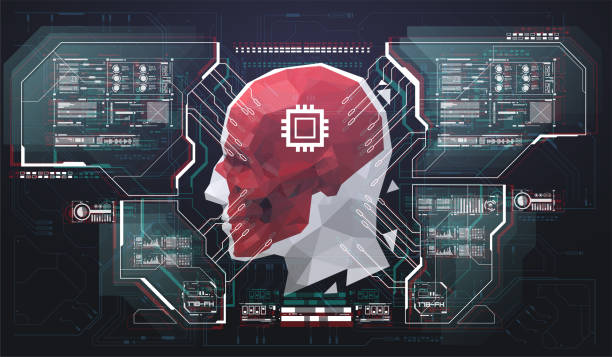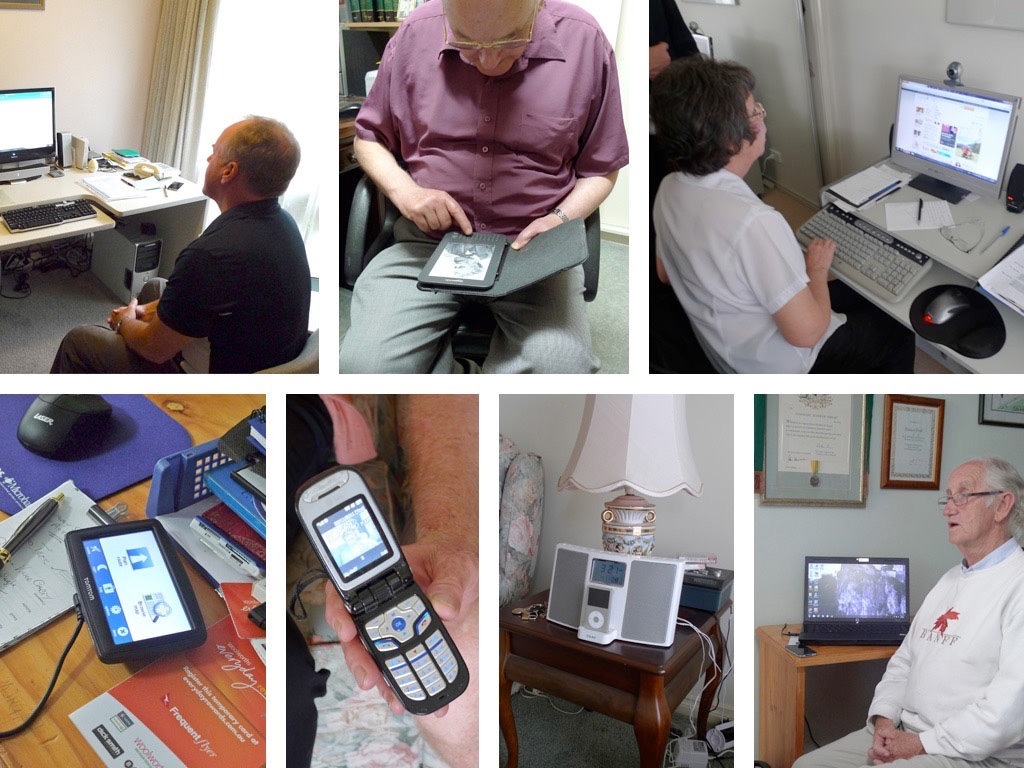
The Dark Side of AI: How Artificial Intelligence Can Be Dangerous for Personal Use
Artificial intelligence offers incredible benefits but also poses significant risks to personal safety, privacy, and mental well-being. Understanding these dangers is crucial for navigating the increasingly AI-driven world.
✨ Raghav Jain

Introduction: Understanding the Dangers of AI for Personal Use
Artificial Intelligence (AI) has revolutionized nearly every aspect of our lives, making tasks easier, faster, and more efficient. From smart assistants like Siri and Alexa to personalized shopping experiences, AI has undeniably become a cornerstone of modern technology. While AI has brought about enormous benefits, its increasing integration into personal use raises a host of concerns.
What happens when these systems learn too much about us? How do we protect our privacy in an AI-powered world? And what are the unforeseen consequences of relying on machines to make decisions that affect our lives? In this article, we will explore the dangers associated with AI for personal use, including its impact on privacy, autonomy, mental health, and even personal safety.
AI and Privacy: A Growing Threat
Surveillance and Data Harvesting
AI is at the forefront of surveillance technology. With the proliferation of devices like smart speakers, wearable fitness trackers, and even connected appliances, AI-powered systems are constantly listening and learning from our behaviors. These devices collect an enormous amount of data, including voice recordings, location information, browsing history, and even biometric data. While this data can be used to improve the functionality of services, it also opens up significant privacy concerns.
Many tech companies, including Google, Amazon, and Facebook, have faced backlash over the ways they collect and use personal data. The very nature of AI systems makes it possible to gather vast amounts of information, often without consumers fully understanding what’s being tracked. In a world where everything is connected, personal information is a valuable commodity. This means that AI-powered systems are increasingly vulnerable to misuse.
Example: In 2021, it was revealed that Amazon's Alexa smart speakers were inadvertently listening to and recording conversations, raising concerns about unauthorized surveillance. Even more concerning is the possibility of hacking, where malicious actors could exploit these systems to spy on users.
The Risk of Data Misuse
The data collected by AI systems can easily be used for more nefarious purposes. Hackers, for instance, may target personal data stored in AI systems, including financial information, passwords, and social media activity. With such a vast pool of personal data available, cybercriminals can easily create targeted attacks designed to exploit vulnerabilities.
The threat of identity theft has also been amplified by AI. With an AI system capable of analyzing vast amounts of personal data, it becomes easier to impersonate individuals online. Cybercriminals can use AI-generated voices or deepfake technology to mimic someone’s voice or likeness, leading to potential fraud or other types of criminal activity.
Example: A recent study by researchers at MIT highlighted how AI could create realistic voice clones, allowing fraudsters to manipulate individuals into transferring money simply by mimicking a trusted voice.
AI’s Impact on Autonomy and Free Will
Decision-Making Algorithms: Who’s in Control?
As AI systems become more advanced, they increasingly take over decision-making processes in personal settings. Whether it’s the recommendations on Netflix, targeted ads on social media, or even credit scoring systems, AI is constantly shaping our decisions in subtle ways. These systems, built on algorithms, learn from our actions and preferences to predict what we might like or want next. However, the more AI learns about us, the less control we have over our decisions.
AI’s role in decision-making becomes particularly concerning in sectors like healthcare and finance. AI algorithms are already being used to determine who receives loans, who qualifies for healthcare coverage, and even who gets a job. While these decisions may seem efficient, they often fail to account for the nuances of individual circumstances, leading to unfair bias and discrimination.
Example: AI systems used in hiring processes have been shown to have biases based on gender, race, or age. In one notorious case, Amazon had to scrap an AI hiring tool that was found to favor male candidates for tech roles over female candidates.
The Loss of Human Agency
When AI begins to dominate decision-making, there is a risk of humans losing agency in their own lives. From autonomous cars making decisions on how to avoid accidents, to AI systems selecting the news stories we see, personal autonomy is increasingly being influenced by algorithms. This dependence on AI could erode the human ability to make decisions based on intuition or ethical considerations.
What happens when AI systems make choices based on profit motives rather than human values? What happens when AI systems prioritize efficiency over fairness, or when they develop unforeseen priorities that do not align with our ethical standards? These are questions we must consider as AI continues to gain a stronger foothold in our personal lives.
Mental Health Implications of AI
AI and the Impact on Social Interaction
AI is often touted as a tool to help us connect and communicate with others, but it may be doing just the opposite. As virtual assistants and chatbots become more sophisticated, there is a growing concern about the isolation caused by AI interactions. People are increasingly spending more time interacting with machines instead of engaging with other human beings.
AI-driven social media platforms, like Facebook, Instagram, and Twitter, also play a significant role in shaping how we perceive ourselves and others. Algorithms prioritize content that keeps users engaged, often feeding them highly curated content that can negatively affect mental well-being. Studies have shown that excessive social media use can lead to anxiety, depression, and poor self-esteem.
Example: Instagram’s algorithm, which suggests posts based on user preferences, has been criticized for promoting unrealistic beauty standards and harmful content. Teenagers, particularly, are heavily impacted by this, leading to issues like body image concerns and mental health struggles.
The Pressure of Perfection: AI in Personal Branding
With the rise of social media and digital platforms, AI is increasingly used to curate personal brands. From influencers to content creators, AI-powered apps help edit photos, create video content, and even generate fake reviews or likes. This creates an unrealistic standard of perfection, leading individuals to feel inadequate or pressured to keep up appearances.
As AI improves, the line between reality and digital manipulation becomes more blurred. Deepfakes and AI-generated images are being used to create false identities and distort reality. This could have far-reaching consequences, particularly in the realm of digital self-image, where AI may encourage unhealthy comparisons and perfectionism.
AI and Personal Safety: A Growing Concern
The Threat of Autonomous Weapons
As AI becomes more integrated into military and law enforcement, the potential for autonomous weapons and surveillance systems raises serious concerns. AI-powered drones and robots can be used for surveillance, crowd control, or even warfare. This has led to fears about AI being used in military applications without proper human oversight, creating the potential for large-scale disasters.
The development of autonomous weapons could mean that decisions about life and death are placed in the hands of machines. This raises the moral and ethical question of whether it is acceptable to delegate life-or-death decisions to algorithms.
AI in Cybersecurity: A Double-Edged Sword
While AI is increasingly used to strengthen cybersecurity systems, it can also be weaponized for malicious purposes. Cybercriminals can use AI to bypass security systems, steal sensitive data, and launch cyberattacks more effectively. Furthermore, AI systems can be used to create phishing scams that are more convincing and harder to detect, exploiting human error and trust.
AI-driven deepfake technology is another area of concern. Malicious actors can create realistic fake videos, audio, or images, spreading misinformation, manipulating public opinion, or even causing harm to individuals by impersonating them.
Example: In 2020, a deepfake video surfaced online that falsely portrayed a political leader giving a speech they never actually made. The video was shared widely, leading to misinformation and confusion.
Ethical Challenges in AI Development: Who Decides What’s Right?
AI and the Lack of Accountability
A major issue with AI systems in personal use is the lack of accountability. As AI continues to evolve, these systems make decisions autonomously, but who is ultimately responsible when things go wrong? When an AI makes a mistake that causes harm—be it a faulty recommendation, an unfair decision, or even a harmful social media post—who is held accountable? Is it the developer, the company that deployed the AI, or the AI itself?
Example: In 2020, a hospital in the United States used an AI-based algorithm to prioritize patients for critical care beds during the COVID-19 pandemic. However, this algorithm was found to be biased against Black and Hispanic patients, resulting in certain patients being unfairly deprioritized. In this case, it wasn’t clear who was responsible for the mistake: the hospital, the algorithm’s developers, or the AI itself.
The lack of clear accountability in these cases can have serious consequences for people who are unfairly treated or harmed. Without an ethical framework to guide AI development, personal use of AI might lead to unjust or harmful outcomes.
The Problem with Bias in AI Systems
Bias in AI systems is not just a theoretical problem; it’s a very real risk that can have dire consequences, particularly for vulnerable populations. AI systems learn from data, and if the data used to train them is biased, the system’s decisions will also be biased. For example, AI systems used for hiring, law enforcement, and credit scoring have been shown to exhibit biases based on race, gender, or socioeconomic status.
Example: Facial recognition systems have been found to have higher error rates for people with darker skin tones or women, leading to unfair treatment, particularly in areas like law enforcement where facial recognition is used to identify suspects. These biases can lead to individuals being wrongly accused, discriminated against, or denied opportunities.
When AI is used in personal applications, such as personalized marketing or credit scoring, these biases may impact individuals unfairly. For example, AI-powered credit scoring could deny loans to people from certain neighborhoods or backgrounds, even though they are financially responsible, based solely on biased historical data.
AI and Mental Well-Being: An Increasingly Dangerous Influence
Addiction to AI-Driven Platforms
As AI continues to dominate social media platforms, apps, and entertainment services, there’s growing concern about its role in fostering addiction. Algorithms that personalize content for users, showing them more of what they like, create a feedback loop that keeps them engaged longer. This increases screen time and reduces real-world interaction, which can have a negative impact on mental well-being.
A popular case is how TikTok uses AI to personalize its video recommendations. Users often end up consuming videos for hours because the algorithm continuously suggests content based on their previous views. This type of behavior fosters dopamine addiction, the same type of addiction that occurs when people get hooked on gambling, video games, or other compulsive behaviors.
AI and Its Role in Amplifying Anxiety and Depression
Social media platforms are increasingly powered by AI-driven algorithms that personalize content and feed users more of what they like. However, these algorithms have been criticized for promoting content that can be harmful to mental health, such as idealized body images, fake news, and divisive political rhetoric.
Studies have found that young people, particularly teenagers, are significantly impacted by AI-driven social media platforms. The pursuit of likes and shares, coupled with the overwhelming amount of curated content, can increase anxiety and feelings of inadequacy. AI, instead of being a tool for self-expression and connection, can become a source of harmful comparison, further exacerbating feelings of loneliness and depression.
Example: A study published in The Lancet Psychiatry showed a strong correlation between social media use and an increase in symptoms of depression and anxiety among young adults, especially those who used platforms driven by algorithms like Instagram and Facebook.
How AI is Reshaping Human Relationships
Overreliance on AI in Personal Relationships
AI’s growing presence in personal lives isn’t limited to work, health, or entertainment—it’s beginning to change how people form relationships as well. AI-powered apps for dating, communication, and social interaction are becoming increasingly common, but they come with significant risks. For instance, AI-driven dating apps might provide “perfect matches” based on personality traits, interests, and compatibility algorithms, but these algorithms may fail to understand deeper emotional needs, leading to less authentic connections.
Furthermore, AI assistants, like chatbots, can simulate companionship, leading some people to form emotional bonds with machines. While this may seem harmless on the surface, it raises questions about the nature of human relationships and whether machines should play a role in offering companionship. In extreme cases, individuals may choose to spend more time interacting with AI than with real people, potentially leading to social isolation.
Example: The rise of AI-driven digital assistants, such as Replika (an AI chatbot designed to simulate companionship), has raised concerns about people forming relationships with machines rather than engaging in real-world human connections. This could lead to a breakdown in meaningful relationships and increase feelings of loneliness
The Need for Ethical AI Development
As the risks associated with AI become clearer, there is a growing call for more ethical development and regulation. AI technologies need to be designed with clear guidelines for privacy protection, fairness, and transparency. Moreover, developers must be held accountable for ensuring their systems are free from biases, and that they operate within ethical parameters.
Example: The European Union has introduced the Artificial Intelligence Act, which aims to regulate the use of AI by establishing rules around transparency, accountability, and risk management. The act sets a framework for high-risk AI systems and aims to protect citizens from harm, ensuring that AI benefits society as a whole.
Conclusion: Navigating the Dark Side of AI in Personal Use
Artificial Intelligence offers numerous advantages, from simplifying daily tasks to enhancing personalization in services. However, as we continue to integrate AI into our personal lives, it is crucial to remain aware of its potential dangers. The risks AI poses to our privacy, autonomy, mental health, and safety cannot be ignored. AI systems are increasingly capable of monitoring our actions, making decisions on our behalf, and influencing how we interact with the world.
One of the biggest challenges is the lack of accountability and transparency in AI systems. As AI grows more powerful, the question of who is responsible when things go wrong becomes more pressing. Additionally, AI’s bias, driven by flawed data and unethical design, can exacerbate social inequalities, perpetuating discrimination and harmful practices.
The mental health implications of AI, particularly in the context of social media, are becoming more concerning. AI-driven platforms create echo chambers, promote unrealistic standards, and contribute to mental health struggles, especially among younger users. The growing reliance on AI also raises the issue of reduced human interaction, potentially leading to social isolation and a sense of disconnection from reality.
Moreover, the ethics of AI development and use need to be addressed proactively. Developers and policymakers must prioritize transparency, fairness, and the well-being of individuals to ensure AI is used responsibly and effectively. Strict regulations, clear accountability, and the promotion of ethical AI practices are essential to protect individuals from potential harm.
In conclusion, AI is not inherently harmful, but its unchecked use in personal settings can lead to unintended and potentially dangerous consequences. It is up to all of us—developers, consumers, and lawmakers—to ensure AI’s impact is beneficial, safe, and fair.
Q&A Section
Q: How does AI impact privacy?
A: AI collects massive amounts of data from personal interactions, such as voice recordings, browsing history, and location information. This data can be misused, violating privacy if it falls into the wrong hands.
Q: What role does AI play in decision-making processes?
A: AI systems increasingly influence decisions in areas like hiring, credit scoring, and healthcare. These systems make decisions based on algorithms, which can sometimes be biased or overlook human nuances, leading to unfair outcomes.
Q: How does AI affect mental health?
A: AI-driven platforms, such as social media, can negatively impact mental health by promoting unrealistic standards, encouraging harmful comparisons, and fostering social isolation, especially among vulnerable groups like teenagers.
Q: Can AI lead to addiction?
A: Yes, AI-powered algorithms that personalize content on platforms like TikTok and Instagram keep users engaged for longer periods, leading to addictive behaviors. This can disrupt users’ real-world interactions and increase screen time.
Q: What are the risks of biased AI systems?
A: AI systems are only as good as the data used to train them. If the data is biased, AI can make biased decisions, such as discriminatory hiring practices or unfair credit scoring, leading to real-world harm for affected individuals.
Q: Who is responsible for mistakes made by AI systems?
A: There is currently a lack of clarity around who is accountable when AI systems make errors. Often, responsibility falls on the developers, but with more autonomous systems, this issue becomes harder to resolve.
Q: How can AI be used unethically?
A: AI can be used unethically in several ways, such as creating deepfakes, manipulating personal data, promoting harmful content on social media, or making biased decisions in critical areas like healthcare and law enforcement.
Q: Can AI reduce human interaction?
A: Yes, as AI systems take over tasks like communication, decision-making, and entertainment, there is a growing concern that people may spend more time interacting with machines than with other humans, leading to social isolation.
Q: How does AI in hiring contribute to inequality?
A: AI algorithms used in hiring processes can be biased, favoring certain demographic groups over others. This leads to discrimination, particularly against women, people of color, and other marginalized groups.
Q: How can we ensure AI is developed ethically?
A: Ethical AI development requires transparency, accountability, and fairness. Developers must use diverse data, test AI systems for biases, and adhere to regulations that prioritize the well-being of individuals. Policymakers must enforce these standards to ensure responsible AI use.
Similar Articles
Find more relatable content in similar Articles

Digital Privacy in 2025: How S..
In 2025, digital privacy faces.. Read More

Cloud PCs: Will Your Next Comp..
Cloud PCs are transforming the.. Read More

From Phishing to Data Theft: ..
Cybercrime in India is evolvi.. Read More

Digital inclusion: designing d..
Designing technology for elder.. Read More
Explore Other Categories
Explore many different categories of articles ranging from Gadgets to Security
Smart Devices, Gear & Innovations
Discover in-depth reviews, hands-on experiences, and expert insights on the newest gadgets—from smartphones to smartwatches, headphones, wearables, and everything in between. Stay ahead with the latest in tech gear
Apps That Power Your World
Explore essential mobile and desktop applications across all platforms. From productivity boosters to creative tools, we cover updates, recommendations, and how-tos to make your digital life easier and more efficient.
Tomorrow's Technology, Today's Insights
Dive into the world of emerging technologies, AI breakthroughs, space tech, robotics, and innovations shaping the future. Stay informed on what's next in the evolution of science and technology.
Protecting You in a Digital Age
Learn how to secure your data, protect your privacy, and understand the latest in online threats. We break down complex cybersecurity topics into practical advice for everyday users and professionals alike.
© 2025 Copyrights by rTechnology. All Rights Reserved.